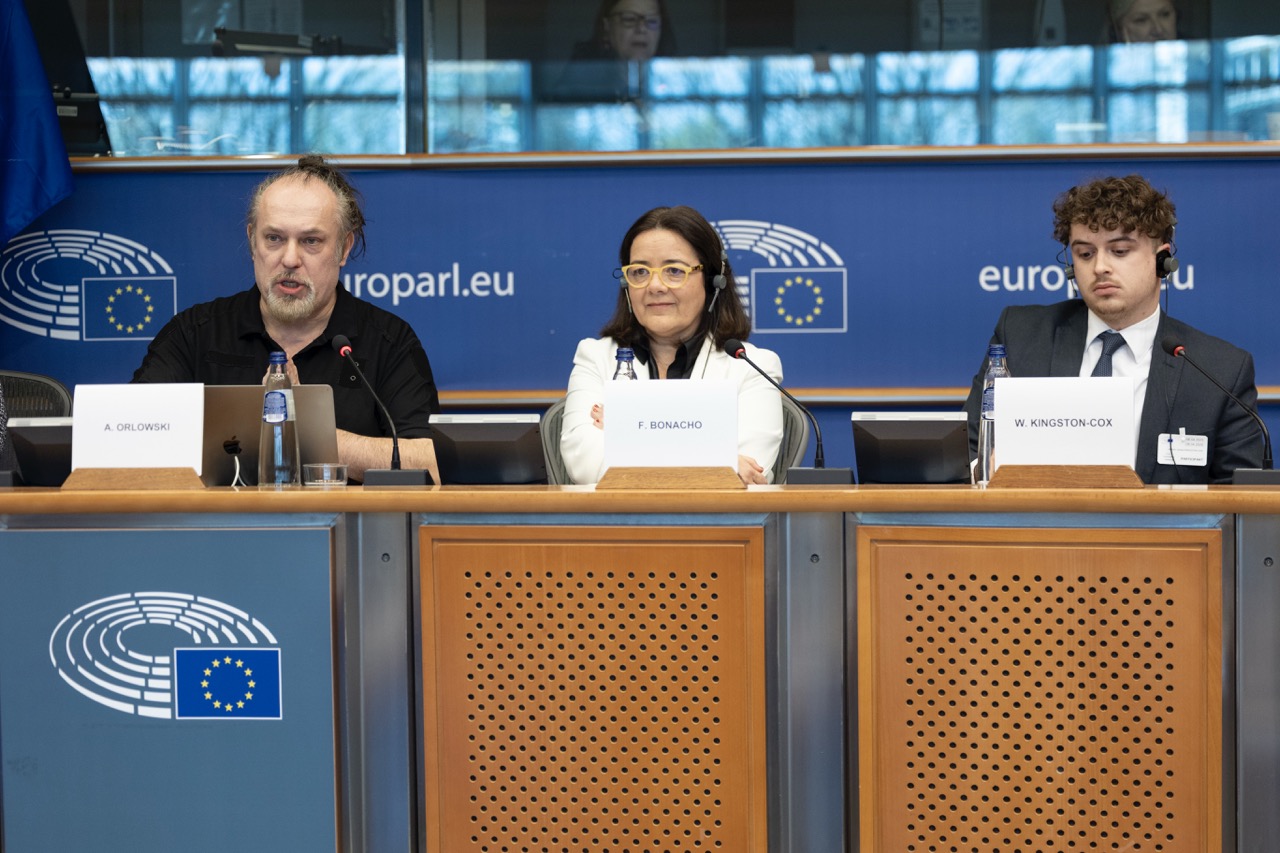Public hearing at the European Parliament with contributions from Fernanda Bonacho
On 8 April, the European Parliament’s Committee on Culture and Education (CULT) held a public hearing on “Enhancing media literacy in the digital age”, exploring the impact of digital technologies on media literacy.
During the session, European experts shared the latest scientific knowledge on communication practices on digital platforms and ways to support the development of media literacy.
One of the guest experts was Fernanda Bonacho, professor at the School of Communication and Media Studies of the Polytechnic University of Lisbon (ESCS-IPL), and holder of the UNESCO Chair on Communication, Media and Information Literacy and Citizenship at ESCS-IPL.
In her intervention, entitled “Journalistic processes to support media literacy”, Fernanda Bonacho explored the importance of journalism in media literacy. The ESCS lecturer discussed current trends in journalistic narratives, especially online, and the need to create new journalistic processes. She stated that current forms of communication offer a huge amount of information, but at the same time, challenge its quality and the ability to distinguish between what is relevant and what is manipulative. Bonacho also recalled that promoting media literacy and supporting journalism are essential to knowing how to counter the rapid spread of disinformation in today’s digital world.
The professor believes that only through collaborative work and innovative and more humanized investment in media literacy can we create a more empathetic and resilient society, where citizens are informed responsibly and are available to participate in a rational and tolerant manner in the public debate. Fernanda Bonacho concluded her speech by emphasizing how journalism, as a public service and pillar of democracy, must be concerned with finding pertinent and effective journalistic narratives and with playing its central role in this process, ensuring the truthfulness, impartiality and ethics of professional information.
The other guest speakers gave presentations on the role of digital media in everyday life (Francesca Pasquali), the specificities of online disinformation (Alessandro Orlowski), and the empowerment of young people in combating disinformation (Will Kingston-Cox).
At the end, there was also an opportunity for questions from several members of the European Parliament.
Photo by European Parliament

